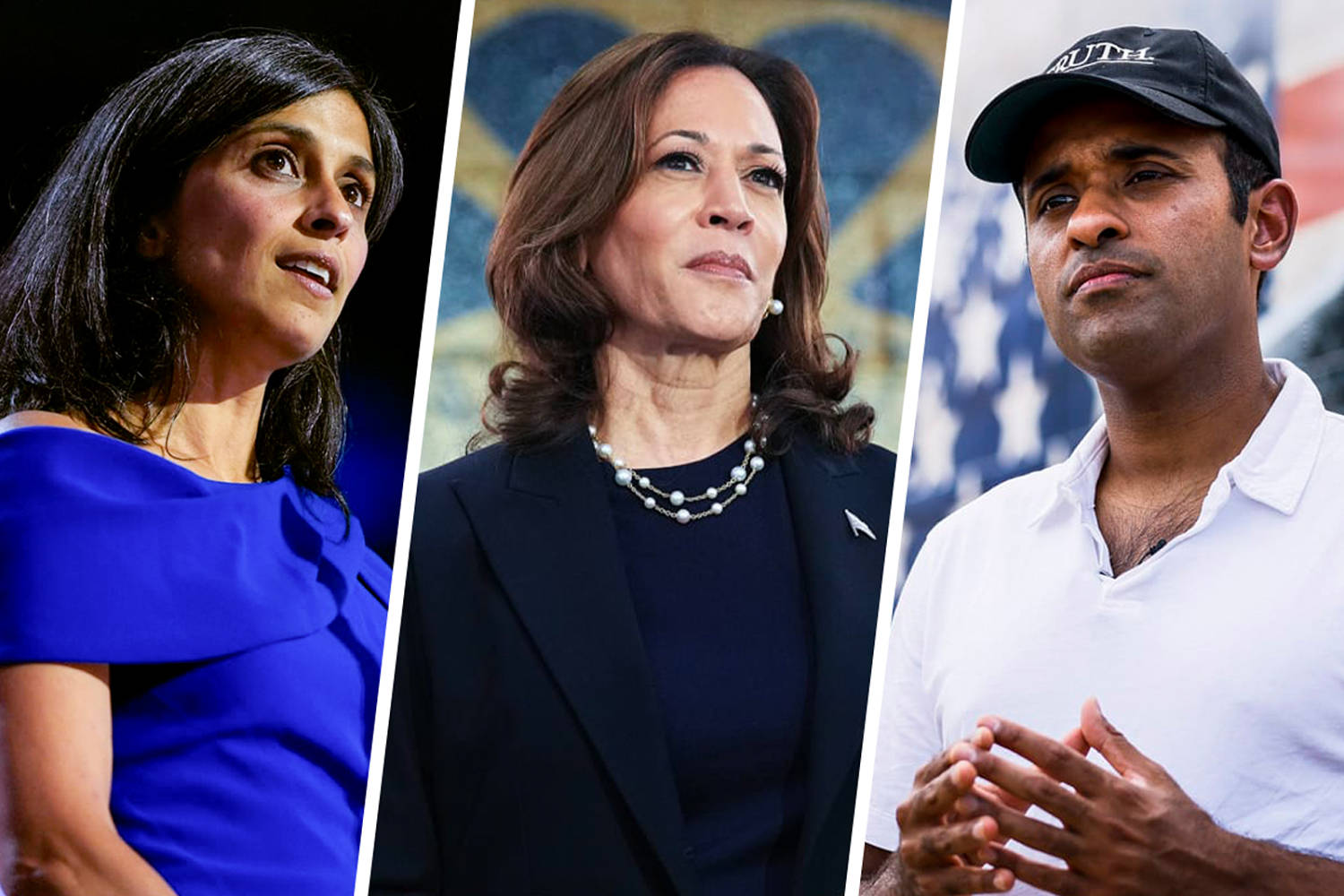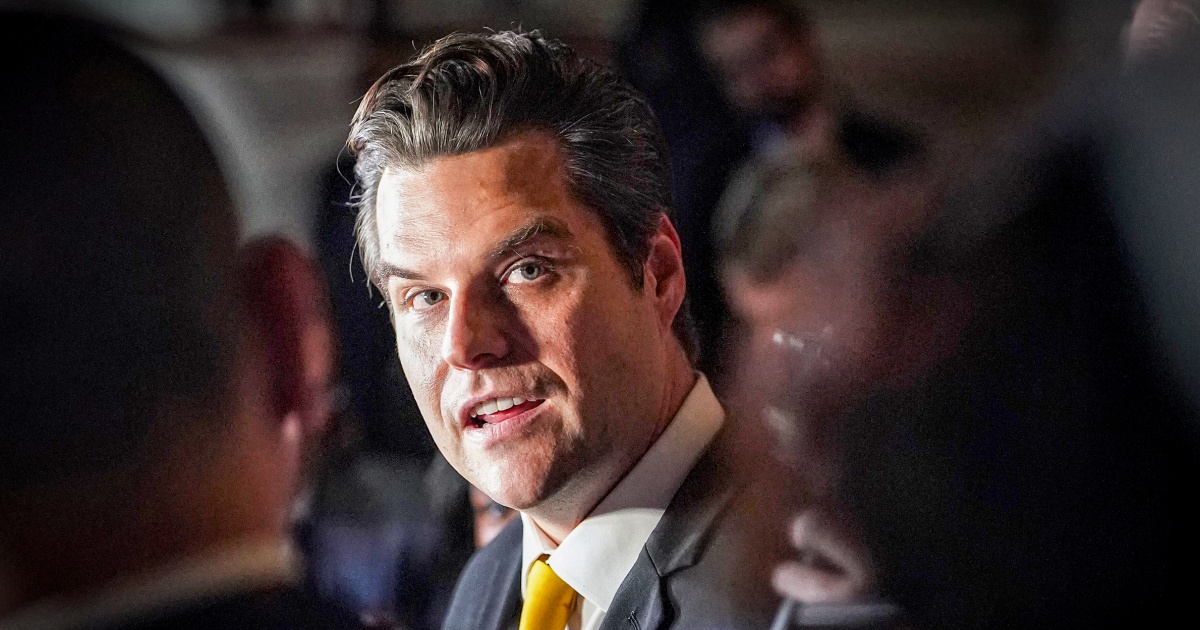
While Kamala Harris made history, Vivek Ramaswamy became a household name, and Usha Vance debuted to a tepid national audience, many everyday South Asian Americans were experiencing something altogether different.
As these political leaders saw their profiles rise, everyday South Asian Americans experienced increased racism, with anti-South Asian posts online doubling over the campaign season, a new report found.
“It’s almost unheard of for a group that comes in at around 1% of the population to be so politically pronounced at the highest level,” said Pawan Dhingra, a professor of American studies at Amherst College. “When a group gets anointed as being politically important or having political celebrity status, it’s put under a magnifying glass.”
A report by Stop AAPI Hate released last month shows anti-South Asian hate has surged since January 2023. Overt racism is up across the board in Asian American communities, but South Asians are feeling the brunt of it this time, the report shows.
Threats of violence against Asian Americans are up 17% from the baseline, and a vast majority of those threats were directed at South Asian Americans, the data revealed.
Forty three percent of South Asians said they had experienced an act of hate in 2023.
Manjusha Kulkarni, co-founder of Stop AAPI Hate, says South Asians across the country have been accosted on the street for their assumed support for Harris, denied rooms at hotels, targeted with slurs and even threatened with violence because of their background.
“There are things like, ‘India is a slimy country,’ ‘go back to India,’ ‘terrorist,’ ‘dirty Indians,’ things like that,” she said. “It’s something people are worried about.”
Sona, a Georgia resident who opted to use only her first name for fear of retaliation, said she was verbally attacked by a man with a Trump flag on his lawn during a routine walk through her neighborhood.
“He started yelling, ‘Get out of here. Get out of this country. I better not see you on the street again,’” she said. “I was so petrified.”
Uses of anti-South Asian slurs and phrases on extremist corners of the internet doubled from about 23,000 in January 2023 to over 46,000 in August 2024, according to an analysis of social media platforms. Online threats of violence peaked the same month that Harris accepted the party’s nomination at the Democratic National Convention and Usha Vance spoke at the Republican National Convention, the report noted.
And anti-South Asian hate online was espoused at every level — from internet trolls with hardly any followers to high-profile allies of President-elect Donald Trump.
Indian American identity attacked on the national stage
In September, far-right activist Laura Loomer posted on social media that if Harris were to win, “the White House will smell like curry & White House speeches will be facilitated via a call center.” The post drew condemnation from others on the right, including now-Vice President-elect JD Vance and Rep. Marjorie Taylor Greene. But experts said posts like these tend to have a trickle-down effect.
“When those kinds of comments are made, it normalizes that kind of talk,” Dhingra said.
It’s one of the many reasons some experts believe Harris chose not to put much emphasis on her racial identity during her campaign. Though Harris broke glass ceilings throughout her career — namely as the first Black and South Asian vice president and major-party ticket leader — she didn’t talk much about her background in 2024.
“Kamala Harris’ campaign became very cautious about using her Indian identity,” said Sangay Mishra, an associate professor at Drew University in New Jersey and the author of “Desis Divided: The Political Lives of South Asian Americans.” “On the right and on the left, I see Indian identity becoming more attacked, contested. That’s a big threat that I see emerging out of this election.”
When asked in an NBC News interview in October about why she didn’t speak much about representation or the historic nature of her run, Harris said she’d rather focus on the issues.
“Well, I’m clearly a woman,” she said. “The point that most people really care about is can you do the job and do you have a plan to actually focus on them.”
Dhingra says regardless of how much or how little a politician emphasizes their race, others will do it for them.
“It doesn’t really matter if the politician is making their group background a salient part of their identity or not,” he said.
At a conference for Black journalists in September, Trump falsely stated that Harris “turned Black” for political gain.
“Is she Indian or is she Black?” he asked.
Racism also followed the Indian American figures rising on the right. When JD Vance was announced as Trump’s vice presidential pick, his wife, Usha Vance. became the target of attacks from white supremacists.
“Do we really expect that the guy who has an Indian wife and names their kid Vivek is going to support white identity?” far-right commentator Nick Fuentes said.
Ramaswamy, a former GOP presidential candidate, has solidly aligned himself with Trump. On immigration, he even pushed to Trump’s right on certain issues like promising to revoke birthright citizenship and “gut” the skills-based H-1B visa program.
Still, his Indian American identity has drawn fire. When he hosted right-wing commentator Ann Coulter on his podcast in May, she put it plainly: “I agreed with many, many things you said … but I still would not have voted for you because you’re an Indian,” she told him.
Ramaswamy, alongside Elon Musk, has been tapped by Trump to lead a proposed future department of government efficiency, and Usha Vance will become the first Indian American second lady. But experts say that just because there are brown faces in the administration, that doesn’t mean its heavily anti-immigrant messaging won’t fall on ordinary South Asians.
“That does not just impact would-be immigrants. That makes all immigrants become, to some degree, less seen as fully American,” Dhingra said.
Communities are scared
Anti-South Asian hate is not new, Dhingra said, but it is something that has spanned the community’s entire history in the U.S. It’s also always reared its head within larger waves of fearmongering around immigrants.
“At this moment in the country, there’s a lot of political violence going on,” he said. “Hate crimes against South Asians have never really gone away.”
Sona, who was verbally attacked while walking in Georgia, says this is the worst she’s seen the climate toward South Asians since the post-9/11 period, when some Indian Americans were presumed to be Muslim and violently attacked, even killed.
“I’ve spoken to many South Asians friends right now who live in certain neighborhoods … where they are nervous about people knowing that they’re Indian or celebrating Diwali,” she said. “I think there is a fear of showing that part of your identity, because what could come for you then.”
Los Angeles resident Payal Sawhney, 46, an Indian American immigrant, says her community members often won’t speak up about things that happen to them for fear that their stories won’t be taken seriously.
In her workplace, she’s had a colleague ask her, “When are you going back?” She’s seen South Asian homes targeted with burglary, elders called names or attacked on the street, and kids increasingly bullied at school.
“South Asians, we don’t voice, we don’t make noise, we just silently are suffering,” she said.
Even though many of her community members sacrificed everything to be in the U.S., some of them are starting to question their place here, Sawhney said.
“There is no way they want to go back. They announced to the world back home that they are coming here to live their American Dream,” she said. “Now they are in a fix: How do I tell my people back home that there is no such thing as American Dream.”








